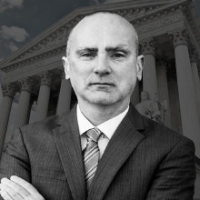Peaster Felony Lawyer, Texas
Sponsored Law Firm
-
 x
x

Click For More Info:
-
Stephanie Alvarado Attorney at Law
100 N Central Expy Suite 805 Richardson, TX 75080» view mapCriminal Defense Law Fighting Against Unjust Prosecution
Attorney Stephanie Alvarado is there for her clients when help is needed right away. Helping people charged with crimes in Texas for over 20 years.
800-988-5471
Christopher Lankford
✓ VERIFIEDChristopher Lankford is licensed to practice law in all Texas state courts, Federal court (Northern District of Texas), and the Supreme Court of the U... (more)
Craig Allen Dameron
With over 15 years of experience representing clients charged with DWI and other criminal charges in Tarrant County and throughout the Dallas-Fort Wor... (more)
Robert Keating
✓ VERIFIEDAttorney Rob Keating has successfully represented individuals charged with crimes ranging from serious felony offenses to minor municipal citations in... (more)
 Stephanie Alvarado Richardson, TX
Stephanie Alvarado Richardson, TX Practice AreasExpertise
Practice AreasExpertise



